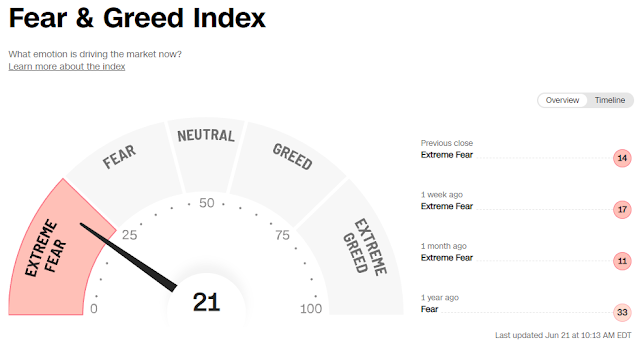- Following last week's fall, which saw the S&P 500 lose nearly $2 trillion, US markets rose on Tuesday. Treasuries retreated.
- Following the holiday weekend, the S&P 500 gained 2.4%, boosted by oil and consumer discretionary stocks, while the tech-heavy Nasdaq 100 gained 2.5%. Revlon (REV) soared 62% after filing for chapter 11 bankruptcy, Kellogg (K) increased 2.0% after announcing intentions to split into three firms, and a basket of the most-shorted stocks rose 2.7%. Treasury yields fell, bringing the benchmark 10-year yield back to 3.3%.
- President Biden's words that a US recession isn't "inevitable" have helped confidence this week, but the outlook remains bleak for investors pondering whether the market has bottomed. Bear markets, especially when accompanied by a recession, such as the financial crisis of 2008, take time to establish a floor, according to history. The president of the Richmond Federal Reserve, Thomas Barkin, stated that the US central bank should raise interest rates as quickly as possible to combat excessive inflation.
- After unexpectedly surging to a new 40-year high in May, US consumer price rise is projected to decrease, with economists forecasting 6.5% growth in the fourth quarter and 3.5% by the middle of next year, according to a major newswire poll.
- However, concerns are growing that Fed policymakers, in their desire to reduce pricing pressures, could go too far and cause an economic slowdown. Equities may have to fall lower to fully price in the risk of recession, according to strategists at Morgan Stanley and Goldman Sachs Group, reflecting broader scepticism about Tuesday's comeback.
- Crude oil gained. Cryptocurrencies recovered from recent turmoil, Bitcoin reached a new high of $20,000. The dollar was barely altered, and the yen remained approaching a 24-year low, weighed down by the difference between Japan's super-dovish central bank and the US Federal Reserve's aggressive stance.
